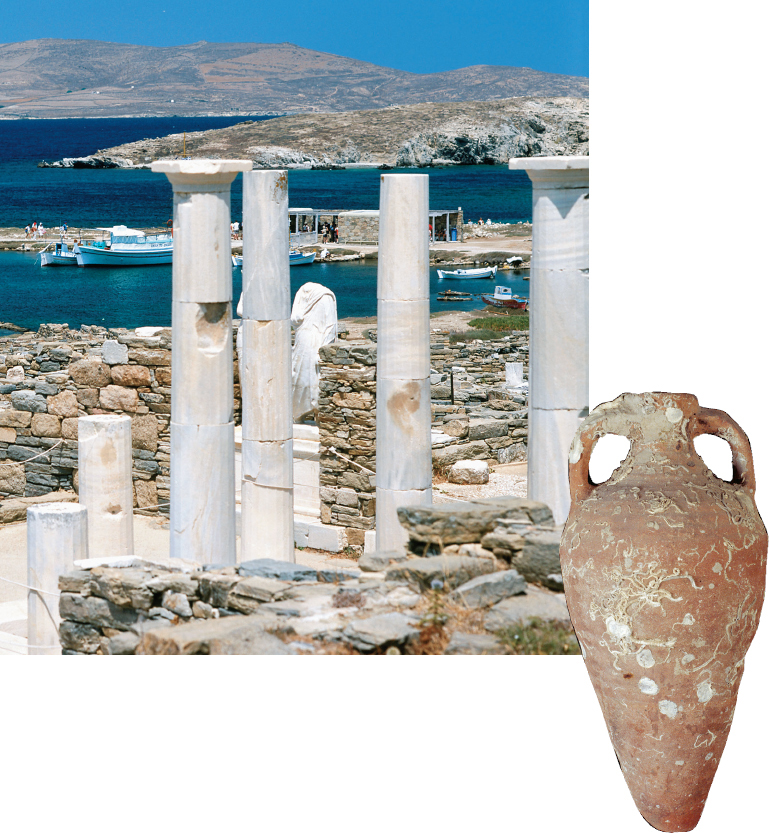
Harbor and Marketplace at DelosDuring the Hellenistic period, the tiny island of Delos in the Aegean became a thriving trading center, with a paved marketplace filled with shops and stands, as well as temples paid for by merchants and ship captains. From Delos cargoes were shipped to virtually every part of the Mediterranean. Liquids such as wine and oil were generally shipped in amphoras (inset) made of baked clay. Amphoras were easy and cheap to make and surprisingly durable. (harbor: age fotostock/SuperStock; amphora: Alexis Rosenfeld/Photo Researchers, Inc.)
TThe Greek city-states wore themselves out fighting one another, and Philip II, the ruler of Macedonia, a kingdom in the north of Greece, gradually conquered one after another and took over their lands. He then turned against the Persian Empire but was killed by an assassin. His son Alexander continued the fight. Alexander conquered the entire Persian Empire from Libya in the west to Bactria in the east (see Map 5.3). He also founded new cities in which Greek and local populations mixed, although he died while planning his next campaign. Alexander left behind an empire that quickly broke into smaller kingdoms, but more important, his death in 323 B.C.E. ushered in an era, the Hellenistic, in which Greek culture, the Greek language, and Greek thought spread as far as India, blending with local traditions.

